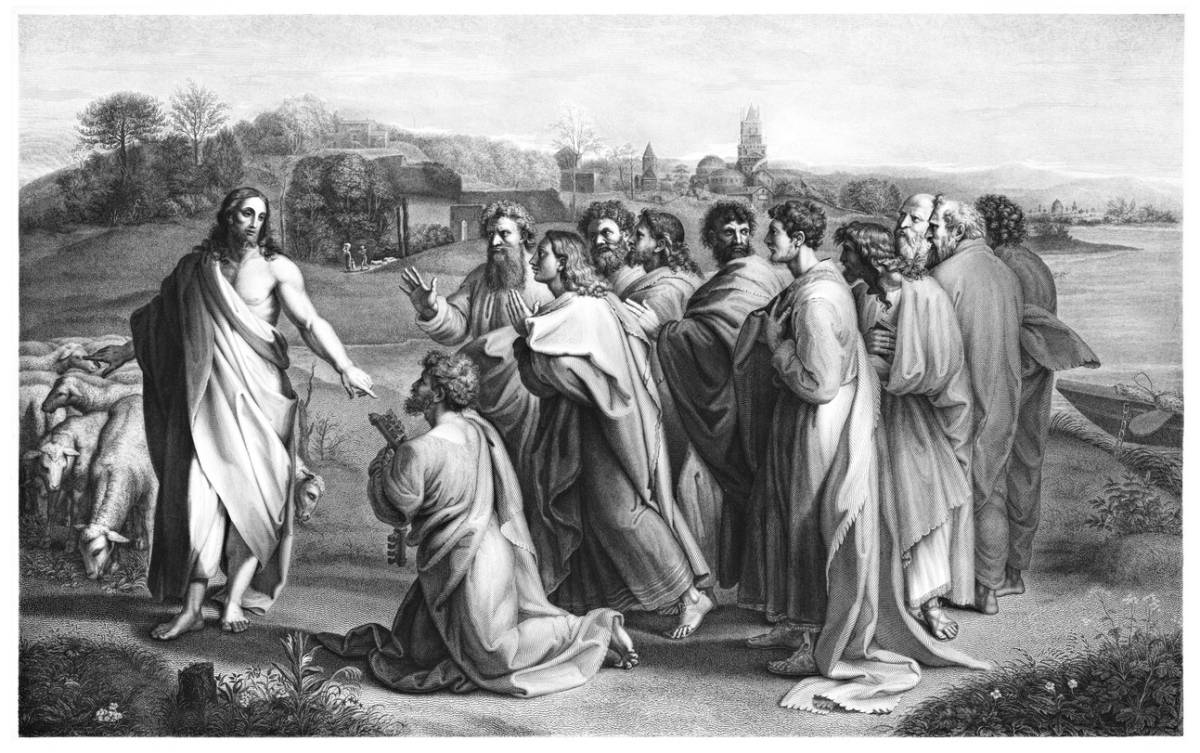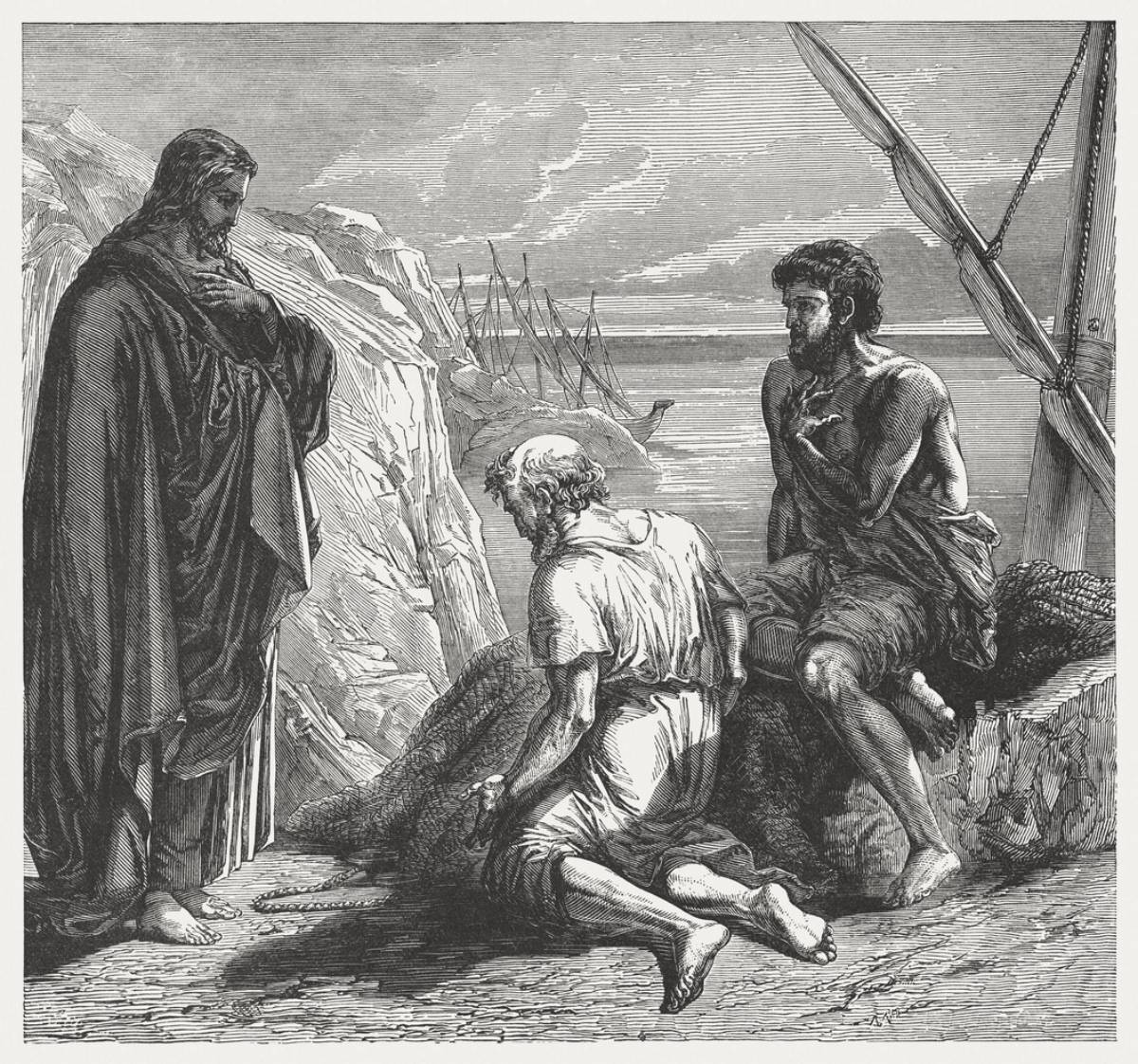As we may know, Jesus and the apostles spoke to one another daily in the Aramaic language, which was common to them at the time. The scriptures we read were originally written in Greek, as that was the “lingua franca” or the common language of the Mediterranean world. The Greek language of Jesus’ time had several words for the idea of love, each implying different levels of love. In this passage from John’s Gospel, two of those forms of the word “love” were used: agape and philia.

Agape is understood to be the highest form of love. It is not dependent on feelings, emotions, or circumstances. It is capable of sacrificing for the other, of putting the needs of others before one’s own. It is demonstrated in deliberate choices and actions, not just emotions, and it is unconditional. This is the love that God has for us, the kind of love God demonstrated to us in and through his Son, Jesus. The other word that is used in the original Greek texts of this passage is philia, which is the kind of love that is shared between friends. It is brotherly love and is characterized by close bonds of affection.
These words are central to the understanding of what Jesus is doing here with Peter. This passage takes place on the shore of the Sea of Galilee, a few days after Jesus’ Resurrection. Jesus and the apostles shared a breakfast, and the apostles now fully recognized who he is. At the end of the meal, Jesus turns to Peter and says to him, “Simon, son of John, do you love me more than these?” (Jn. 21:15). The word that is used by Jesus here is agape. He is asking Peter if he loves him more than even these, his friends who were present with him there.
In other words, Jesus asks Peter if he loves him with the same unconditional, sacrificial love that Jesus showed in his death on the cross. But Peter doesn’t quite get it, yet. He responds to Jesus’ question with, “Yes, Lord, you know that I love you.” But the word for love used here in the original Greek translation is philia. Peter is expressing his affection, his brotherly love for Jesus. Jesus then pushes the envelope, saying something that might seem odd, “Feed my lambs.” This happens three more times. Each time Jesus is taking Peter deeper into the recognition of the kind of love that he, Jesus, has had for him and all others, a love that is unconditional, self-sacrificing, and self-giving toward all of God’s ‘sheep’.

We know that the three times that Jesus asks Peter if he loves him are related directly to the three times that Peter had denied even knowing Jesus on the night that he was arrested and underwent his suffering and death on the cross. At that time, Peter’s deep, brotherly love (philia) and affection for Jesus were not yet deep enough to overcome his fear of the suffering he might incur if he admitted openly that he knew and, indeed, loved Jesus. We might ask ourselves in prayer if our love for Jesus is of the philia or the agape kind.
In this passage from John’s Gospel that takes place on the shore of the Sea of Galilee after Jesus’ Resurrection, we recognize that Jesus needed more from Peter (and he needs more from us). We can imagine how painful this moment must have been for Peter. Jesus was drawing him ever more deeply into the mystery of agape love. He was being asked if he was willing to live out of agape now himself. Each time Peter answers that he loves Jesus like a brother (philia). And each time he is told to feed or to tend Jesus’ sheep. This is a hint of profound importance.
Jesus had called himself The Good Shepherd. Peter remembers this for sure. Each time he hears the words “Feed or tend my sheep,” the dawning reality of the love that Jesus is calling him to grows greater. He is being moved to grow beyond the philio kind of love to a love far more powerful and enduring. He is being called into the kind of love that God has for all of his sheep, the kind of love that willingly accepts the responsibility for the sheep, even to the point of the ultimate sacrifice of his own life. Jesus says to Peter, “Amen, amen, I say to you, when you were younger, you used to dress yourself and go where you wanted; but when you grow old, you will stretch out your hands, and someone else will dress you and lead you where you do not want to go” (v. 18). Jesus says this looking directly into the eyes of Peter (and into yours and mine). He is foretelling Peter’s death, which Peter would ultimately, willingly, and joyfully endure out of his unconditional love (agape) for Jesus and his sheep. He was crucified upside down on a cross in Rome. This is the very same kind of love that Jesus is calling us all to come to know and to live on behalf of one another. As the passage ends, we hear Jesus say to Peter, and to us. “Follow me” (v. 19).

All he asks of us, as he did of Peter, is that we desire to love in this way. In our human sinfulness, we, like Peter, cannot do this alone. But if we come to truly desire to love one another as Jesus loves us, he will give us the graces we need to help us to do so, just as he did to Peter. Trust in Jesus. He will always provide. For, as we know, his love is greater than sin and death. Thanks be to the agape of God. Amen.
SKM: below-content placeholderWhizzco for FHB

